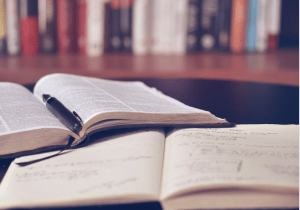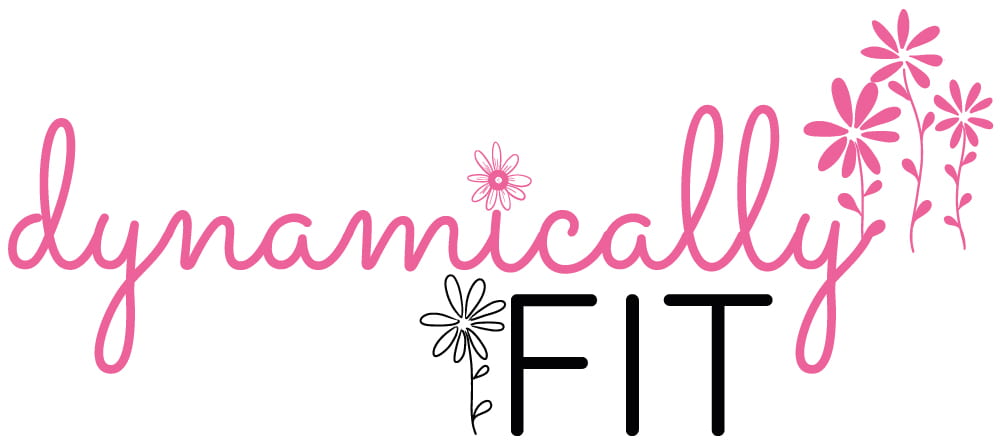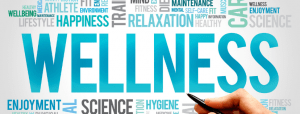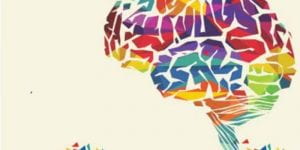Week Commencing 12th November Reflection:
Reading for essays is different from reading for general study and I need to focus my study skills learning on making both more efficient.
When I’m studying for an essay:
- I prefer big blocks of time. A whole morning for example.
- I like to read first, then have thinking time for a number of days/weeks. Then write.
- What I think in my head doesn’t seem to come out on paper. It sounds much better in my head, how can I make my writing as good as what’s in my head?
I’m confused about what I need to learn definitively when there is SO much content.
I answered my questions on how to check for peer reviewed research! Great session from Hazel in psyche regarding this! You can do a search on discovery for peer reviewed research on discovery.
 Week Commencing 2nd November Reflection:
Week Commencing 2nd November Reflection:
Need to read up on how to research better when looking for papers. Not just looking for papers but thinking about questions.
Current strategy:
Research what I think I know to be true.
Prove it or disprove it.
This strategy, I feel, has an element of bias so I need to think outside the box, asking myself better questions. I need to think of questions that I may not even use in an assignment but will offer me a broader perspective.
Further to this, I’ve had a breakthrough and am figuring it out: peer review.
Reading a book: Diagnosis and Treatment of Chronic Fatigue Syndrome: it’s Mitochondria, not Hyperchondria.
This is a source I trusted when I myself experienced a long period of chronic illness.
I was researching the book for material for my psychology essay and I noticed a distinct lack of references in the book. It lead me onto thinking about why this was. Anecdotal evidence is not a basis for proof.
The Dr who wrote the book, Dr Sarah Myhill, has published a number of research papers ‘proving’ her theories.
Upon peer review by a charitable organisation dedicated to the illness, her biomarker tests could not be replicated. Healthy controls produced the same results as those with the illness. The tests are flawed. Coupled with the financial incentives for the Myhill group to conduct the tests, it brings the entire intentions of the group into question.
Prior to this, I searched for peer-reviewed research papers by the same Dr via discovery and could not find any.
She is offers understanding to severely ill patients who are often snubbed by the biomedical industry a depressed or just lazy and it can be seen why, as a Dr, she has a very large following. Without solid, peer-reviewed evidence it is my concern she is just adding fuel to the fire and more reasons for outsiders to dis-believe the illness.
So my question is….how to do you find out if something is peer reviewed – how can you check? And how can you check for the robustness of those peer reviews?
Reading week musings:
Pay attention to the authors of the papers you’ve been given to read.
- It might come in handy in the future when doing research.
- It’s good to know who the well-established authors are and who has credible scientific underpinning.
I feel overwhelmed by how much there is to do. One paper leads to another, there is so much I want to learn and write about and there are also assignments! It’s hard to know how to apportion my time. Need to look into this further.
Blood pressure article reflection:
It’s one thing being able to cite info, it’s another being able to add my own insight – add value to an expand upon research and theories. How do I get better at that? How do I know that my own input is correct?
Week 4 Reflection: Written on Wednesday 21st October:
I feel more confident about speaking in class and offering insight. It seems to be gradually developing but I’m also taking a very active approach to reading and making sure I’m thinking about what I’m reading when I’m out walking the dogs or talking it through with Kyle. I think this is helping to cement the learning.
I also find that repeated exposures to the same material helps me to learn it more easily. What I find difficult with this is the fact that there is SO much material that I want to cover and re-going over the same info prevents me from reading further material but isn’t it better that I learn things rather than gather lots of information? Some strategies I could use are:
- Typing up my notes.
- Actively going over a section of notes each time I start a period of study.
- Asking further questions regarding the notes and do more research based on them so I learn more but it cements my learning of that same material.
I need to improve my academic vocabulary. I find it hard to articulate my thoughts into something that sounds academic and professional so this is something I really need to focus on. I have the academic phrasebank and have also downloaded a vocabulary app but need to do further research into how to do this. Another strategy I could use is to note down vocabulary that is either new to me or that I don’t use very often in the literature I’m reading.
Finally, I need to create a spreadsheet to keep hold of papers I’m interested in.
Overall, I’m absolutely loving my university experience. The girls in the class are all lovely, I LOVE the course content and feel the happiest and least stressed that I’ve felt in a long time.
Week 3 Reflection: Written Wednesday 14th October:
I wrote last week about being insightful. This is definitely an area I need to focus on. I can offer great insights during a classroom discussion initially, but I struggle to follow through with deeper insight when questioned. Is this something that will naturally come as I do more research or is this something I need to actively work on? Does this relate to my ability to think critically or is it a separate entity altogether?
My plan to be prepared so I can eat healthily and exercise worked. I have been more organised, prepping my food and creating time for gym and it paid off.
Activity:
Plan each day ahead of the day so I know what my focus/focuses are for each coming day. This will prevent me from flitting time but also ensure I plan in time for breaks!
I spoke with the futures team this week and am very glad I did. They opened up avenues I hadn’t even thought to explore – I wanted direction but the advice was to explore the many avenues I’m interested in which will put me in a much better position to decide what I think will be the best direction in the long term.
Activities:
- Gain a shadowing day in a public health dept.
- Contact local advocate for healthy eating in poverty (I’m interested in physical activity in poverty so that would tie in well).
- Gain a shadowing day in a college to see if teaching is something I would like to look into.
- Have a chat with one of the tutors/lecturers to gain insight into their path, variety of work/helping people and how they got there as from what they’ve said, they have followed many of the paths I’m interested in.
- Brainstorm all possible directions I would like to go in so I can add to this list.
I want to immerse myself into uni life and feel that COVID is preventing that to some extent. I am in the process of organsing our class to go into study groups so we can collaborate and help each other and also form a tight and supportive community. I’m hoping we can arrange a strategic approach with the study sessions to ensure that we get the most from the sessions and it aids our learning.
I’m concerned about how long it has taken me to put together a short, 500 word essay on a subject I already know a lot about. I’m sure I will improve in time, the main issues are:
- The speed of finding the right references.
- Not knowing which reference sources are the best to use.
- Overthinking the subject matter and what’s required – I really want to do a good job!
Week 2 Reflection: Written Sunday 11th October
- I need to learn how to be more insightful so I can answer questions more thoroughly when asked.
- I find it easier to understand an academic paper when I convert the text into my own words.
- I have less available time so I have to be assertive with the time I have and ensure I plan and priotitise healthy food and exercise.
Week 1 Reflection: Written 7th October 2020.
I have learned a lot in this first week. The main things I have learned about university study so far are:
- For each seminar or lecture, there is PRE and POST work.
- Look at the seminar or lecture slides PRIOR to completing the work so I can tailor my work towards what will be discussed during the lecture, to be fully prepared for the discussion.
- Be aware that work/additional reading may pop up throughout the week so check each module tab DAILY, and up to the day of the lecture so as not to miss out on any required work.







